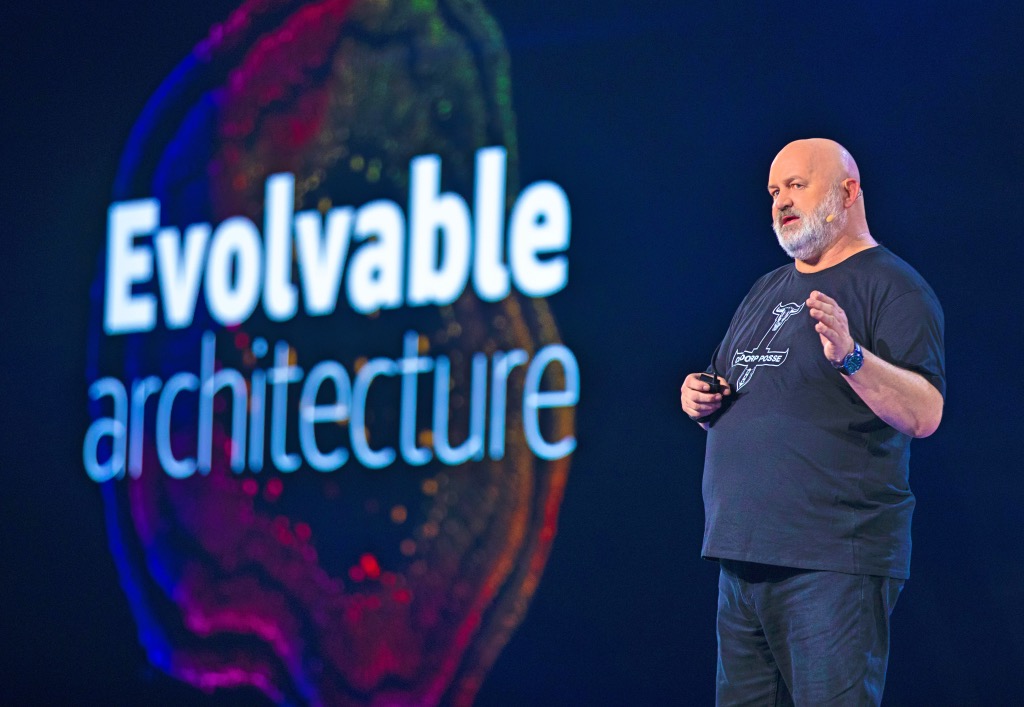The AWS Global Summit is an annual event that is held in 30 regions around the world. It brings together AWS customers, partners, builders, and the technology community — who all come together to enhance their knowledge and skills, and share experiences. Due to the prevailing circumstances, AWS Summit 2020 was held online this year, and was reduced to a day (past events have run for four days). This year the online event was conducted on separate days for regions like US & Canada, Australia & New Zealand, ASEAN, India and Korea. The India event was held on 13 May 2020. The virtual summit had 40+ sessions and tracks that included a keynote, fireside chat, 9 technical tracks, experience zones, and AWSome Day (hands-on sessions and demos).
Welcoming the Indian audience, Puneet Chandok, President India & SAARC, AWS said, “The AWS Summit is a mass education event designed by customers and partners to ensure that you can train, design, operate and develop.”
Delivering the keynote address, Dr. Werner Vogels, CTO, Amazon said, “It is important for businesses to build a solid foundation and to architect properly from the beginning, when building systems. Be thoughtful about resilience and security from day one.”
Vogels urged builders to use The Amazon Builders’ Library and the AWS Well Architected Framework, both of which are free of cost to use. “These assets help anyone create virtually any type of application on AWS. Customers can go back to the fundamentals and use frameworks like these to optimize their systems.”
AWS recently introduced Lenses, a set of best practices and guidelines focused on specific tech domains such as IoT, Serverless, etc. Lenses are associated with workloads. The AWS Well-Architected Framework Lens is automatically applied when a workload is defined.
The Serverless Lens focuses on designing, deploying, and architecting serverless application workloads in the AWS Cloud. This lens covers scenarios such as RESTful microservices, mobile app backends, stream processing, and web applications. Using this lens helps you apply best practices when building serverless application workloads on AWS.
Content Creation in the Cloud
For the rest of the keynote, Vogels gave examples of how customers in different industries are using AWS services to scale up their infrastructure on demand. He dwelled on the Media & Entertainment industry and content creation and consumption.
“With people locked away in their homes, consumption of streaming video content has shot up 40% in the past month,” said Vogels.
According to a Nielson study, video data has doubled in the US. In the week of March 30, 161.4 billion minutes of streaming video were consumed. And that’s just one week. In 2019 it was 69.8 billion minutes.
“The top streaming providers all run on AWS. So it is about scale and scalable systems. Their ability to scale up on demand is enabled by AWS ultra-scaling features with machine learning being used for predictive scaling,” said Vogels. “Load balancing is also important and this is provided by Amazon CloudFront and Amazon Route 53.”
To put it in perspective, Vogels spoke about the production process for TV shows, which has an end-to-end lifecycle of 18 months. A 30 second HD TV commercial, for instance can generate 10 terabytes of data. And a whole TV show or a series of episodes can result in several petabytes of data. This data needs to be curated, transferred, processed, and stored. It also has to be secured and made available to authorized users from any location, on-demand.
Various teams are involved in the production and editing processes. These teams are dispersed and collaborate on the cloud. Moreover, production processes are complex and occur in parallel. So the infrastructure needs to be robust and scalable. The core assets at the backend need to be available to anyone in these teams, working from anywhere.
“You need to be able to scale storage and give fine grain access to consumers,” said Vogels.
Vogels drew similarities between the editorial pipelines and the software development pipeline and then mapped AWS services to the production process and workflows. The key services used here are AWS Snowball, Amazon S3, and Amazon EC2.
Untold Studios took a new approach to content creation in the cloud. It operates completely in the AWS public cloud. Samuel Reid, Head of Technology, Untold Studios, said he needs to take critical decisions about how much storage, capacity, and rendering they need.
“If we get a big job tomorrow we will need more storage clusters. The speed at which we scale is phenomenal, thanks to the cloud,” said Reid.
Other Customer Examples
The stuff that we saw in science fiction movies years ago has now become a reality thanks to cloud technologies. In the 1960s spy movies, we saw video conferencing in cars. And in the 1980s we saw 3D printing with microwave ovens creating burgers out of thin air.
“These past few months have ushered in a new era in technology where we are seeing a fundamental shift in how everyone is fueling not just the technology itself, but how we access that technology and how we build that technology. And AWS is accelerating the path to a world that we predicted many years ago,” said Vogels.
He continued: “This technology will continue to evolve and most organizations will be transforming into a completely cloud based environment where any worker can access any application or service from anywhere at any time.”
He also cited other AWS customer examples like KRY Care Connect, Nextdoor (a neighbourhood hub), Filaindiana.it (app for grocery shopping in Italy), Doyourpart (social distancing and hygiene), Hara Token (Indonesian startup helping farmers), and Porto (connected car, Portugal). All these are enabled by the Amazon platform.
In India, AWS is enabling businesses like Madura Micro Finance, SPI Cinemas, Intellect Design Arena, and RBL Bank (among others).
From all these examples it is clear that the cloud is helping businesses of all sizes to start operations, respond quickly to customer demand, and scale up on demand. The cloud is enabling new business models and innovation. It overcomes traditional business challenges. And these business apps can be create in a few hours or days, utilizing AWS services from the cloud.
But is not just about business. The AWS platform is also helping communities worldwide and helping in social causes.
RELATED STORY
AWS Summit 2019: Why Everyone Wants to be a Part of the AWS Universe









